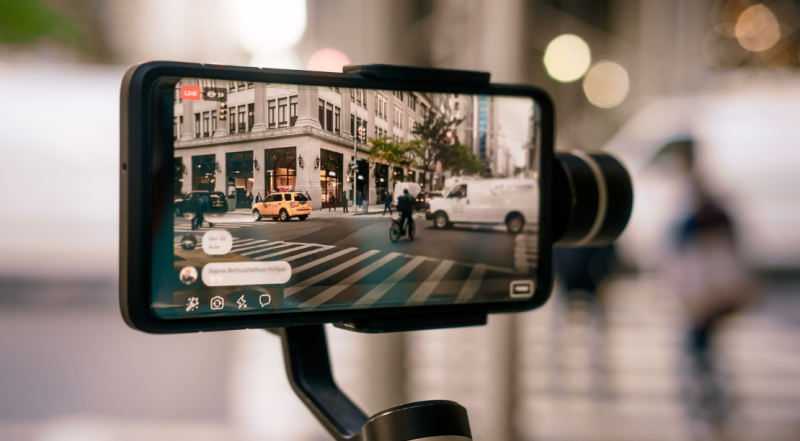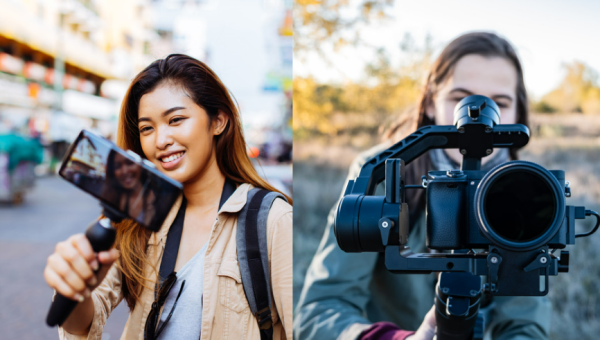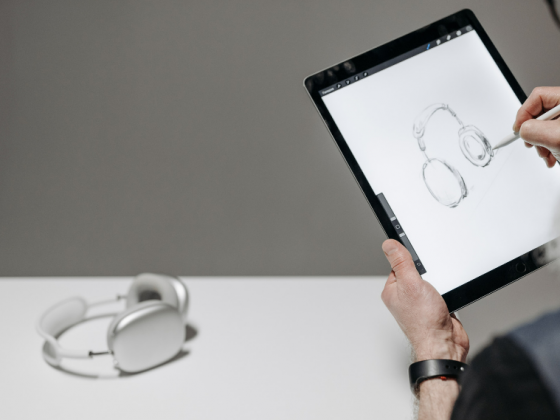
In a world driven by visuals and digital memories, photography has evolved into a universal art accessible to all. Whether you’re snapping shots with your smartphone or venturing into the realm of dedicated cameras, embarking on a photographic journey is a rewarding and enriching experience. If you’re a beginner eager to dive into the captivating world of photography, this guide serves as your compass, helping you navigate the fundamental tools and techniques necessary to kickstart your creative adventure.
Choosing the Right Gear
Before you embark on your photographic journey, selecting the right gear is a crucial first step. While professional cameras offer unparalleled flexibility, modern smartphones have evolved into powerful tools for capturing stunning imagery. Regardless of your choice, it’s essential to familiarize yourself with your equipment’s features and settings to make the most of your gear.

If you’re ready to make an investment, entry-level DSLRs or mirrorless cameras are excellent options, as they allow you to experiment with manual controls and grow as a photographer.
Understanding Composition
The core of photography lies in composition, which is the art of arranging elements within your frame to tell a compelling story. The rule of thirds is a fundamental principle in photography. It involves dividing your frame into nine equal segments and strategically placing your subject at the intersections or along these lines. Experiment with leading lines, symmetry, and framing to create visually appealing and dynamic shots that draw your viewer’s eye into the image.
Mastering Lighting Techniques
Lighting can be the make-or-break element in your photographs. Natural light during the golden hour (early morning or late afternoon) casts a warm, soft glow that enhances your subjects and scenes. On cloudy days, you’ll experience diffused light, which reduces harsh shadows and offers an excellent opportunity for experimenting with captivating backlighting and creating striking silhouettes. For indoor photography, you can use softboxes, reflectors, or even a plain white wall to bounce and diffuse light effectively.
Getting to Know Camera Settings
Understanding the basics of camera settings is crucial for gaining creative control over your images. Explore the exposure triangle, which comprises aperture, shutter speed, and ISO. These settings allow you to manipulate the balance between light, motion, and noise in your photographs. Aperture influences the depth of field, shutter speed controls motion blur, and ISO manages sensitivity to light. Begin with semi-automatic modes like aperture priority or shutter priority before delving into full manual mode, allowing you to gradually master the intricacies of your camera’s settings.
Exploring Post-Processing
The magic of photography often continues in the post-processing stage. Software like Adobe Lightroom or smartphone apps provides tools for enhancing colors, adjusting exposure, and cropping your images. It’s important to remember that post-processing should enhance your image, not radically alter it. Experiment, but strive for a final result that maintains a natural and authentic feel, letting your creativity shine through.
Practice, Patience, and Persistence
Photography is an ever-evolving art. Embrace the learning curve and grant yourself the freedom to make mistakes. Regular practice sharpens your skills and encourages creative growth. Experiment with different subjects, angles, and techniques, such as portrait photography, landscape shots, macro photography, and street photography. Keep in mind that each click of the shutter is a step towards mastery.
Seeking Inspiration and Learning
Inspiration is abundant in the world around you, from the beauty of nature to the intricate details of architecture and the stories within everyday moments. Studying the works of master photographers, both historical and contemporary, can provide valuable insights into their techniques and styles. Online tutorials, photography communities, and workshops offer invaluable resources for learning and networking with fellow photography enthusiasts.
Conclusion
Photography transcends the act of capturing images; it’s a means of storytelling, self-expression, and self-discovery. As a beginner, you embark on a thrilling journey of experimentation, growth, and boundless creativity. By understanding the essentials of gear, composition, lighting, camera settings, and post-processing, you can capture life’s fleeting moments with an artistic eye. Embrace the process, celebrate your progress, and let your passion guide you through the captivating world of photography.




